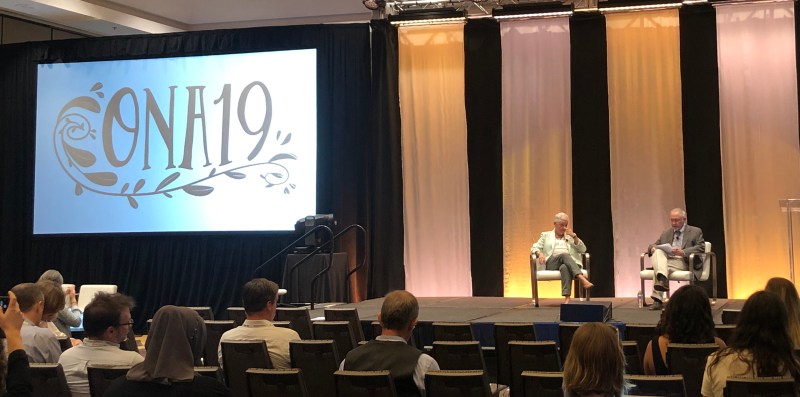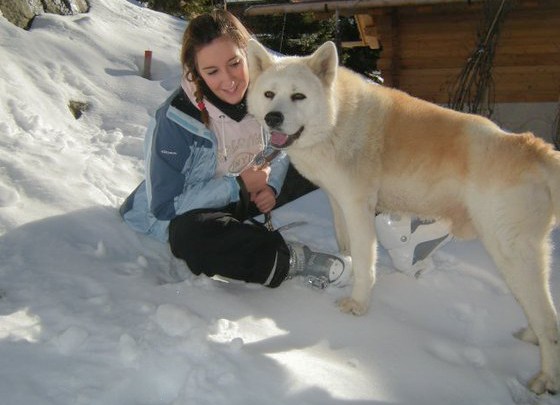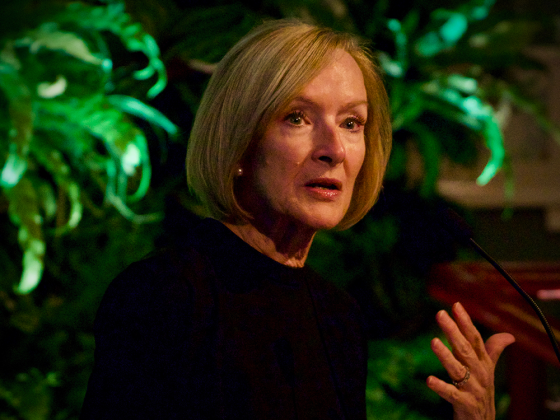The best way to present a global issue as overwhelming as climate change is to go local.
That’s what Gina McCarthy, administrator of the Environmental Protection Agency under former president Barack Obama, emphasized Thursday during her presentation on journalism in the age of climate change. One of the biggest ways to make readers care about environmental journalism, she said, is to connect it to the big issues to their community.
“Find out what people are concerned about in your community, and instead of talking about the hopelessness of the situation or how hard it is to deal with it, which of course, these days that’s fine to cover,” said McCarthy, who currently leads Harvard University’s climate science curriculum and sustainability plans as the director of its Center for Climate, Health and the Global Environment. “But if you want a local story, talk about what they care about and talk about solutions.
“I never bring up a problem without talking about a solution because the one way to turn people off and to get them to stick their head in the sand is to tell them that it’s too big to fix.”
A pet peeve of hers is seeing a climate change story use polar bears and falling glaciers as go-to imagery. The visual is too distant. Journalists, she said, don’t do a good enough job of relating climate change to “human beings’ lives.”
“I’m not saying we don’t want them protected, but for crying out loud, using the face of a kid struggling with asthma because air pollution is horrible,” she said.
Journalists need to connect the story back to local public health concerns, rely on the medical community for accuracy and aim for empowering stories through solutions journalism, she said during the session, in which she was interviewed by Mark Schleifstein, a Pulitzer-finalist climate reporter from The New Orleans Advocate | The Times-Picayune.
The public is concerned. In a 2018 survey by Yale and George Mason University, 72% of Americans say climate change is a personally important issue, and 46% say they have personally experienced the effects of climate change.
McCarthy said journalists, policy makers and officials should focus on these personal experiences. What is also vital is that climate change coverage should also be framed as a public health story.
McCarthy said doctors, nurses and other professionals would be more trusted in the community than political parties and elected officials. Trust between citizens and the government is also low because of the complex, jargon-heavy language used by officials.
.@GinaEPA: "(The Trump administration) are closing labs which are vital to states..It is an absolute strategy to make sure that the right science can no longer be considered or you won't have the right expertise at the table to advise you."#ONA19ClimateChange
— nisa khan (@mnisakhan) September 12, 2019
In the question-answer session after the interview, the ethical question of receiving funds from large companies who have lobbied against climate-change efforts, such as Koch Industries. The Koch brothers have donated to a variety of organizations, from MIT’s cancer center to Poynter’s college journalism program.
“You’re going to have to use your own judgment as to whether actually taking the money influences you to change a story or not do a story,” McCarthy said. “In this day and age, for the folks at Harvard School of Public Health, with NIH funding being cut off from much of what they do and with EPA funding being cut off from them, you don’t leave much choice other than to go to private foundations for support. I think you just need to think long and hard about how to accept money and maintain your independence no matter where that money is coming from.”
McCarthy believes that collectively, people are able to make positive changes.
“Stop limiting our ability as human beings to be able to address our own problems by always focusing on the end and not the next step,” she said. “That’s not how change ever happens.”






